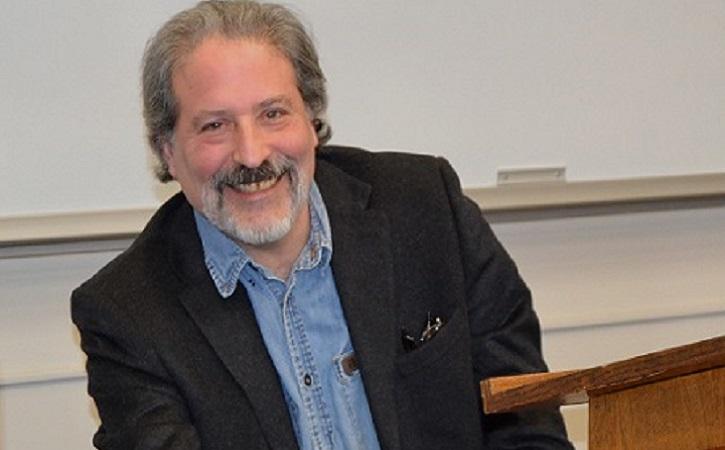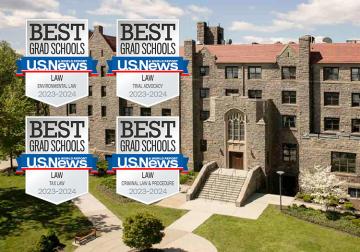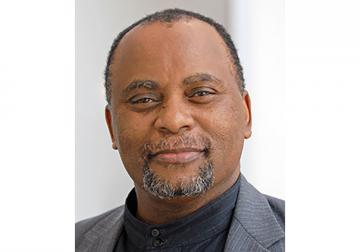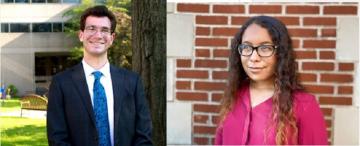Faculty Profile - Professor David Dorfman

ASK PROFESSOR DAVID DORFMAN about the most important case of his career as a practicing attorney and he’ll start by describing a hamburger.
“I can still picture him eating it, how juicy it was, how much he enjoyed it,” Professor Dorfman said while sitting in his office on the third floor of Preston.
He had bought the hamburger for his client. It was the first thing the man had wanted after he was acquitted of a crime that would have sent him away for the rest of his life; the first thing he wanted after he walked out of Rikers where he had sat for a year and a half awaiting his trial. Professor Dorfman had served as his Legal Aid attorney.
“He had been a loser his whole life,” Professor Dorfman explained. “He never expected to be acquitted. But he had turned his life around and, reading through the file, I was convinced he was innocent.”
The case illustrates the difference that one person can make when they are an effective lawyer—the biggest lesson that Professor Dorfman tries to impart to his Pace Law students. It reveals what a lawyer can contribute by stepping into another person’s shoes—someone whose life choices may be very different from your own—and caring enough to use your legal training to bring about an outcome that will change their client’s life.
“There is nothing like representing somebody just about to fall off the edge into oblivion and you are able to keep that from happening,” he reflected. “You don’t win all the time when doing major defense cases, but a trial like that—how more useful could I be?”
It is this passion and commitment that Professor Dorfman works to instill in his students. After almost seven years at Legal Aid, he switched over to teaching when a friend told him about an opening at NYU Law School, a non-tenure track position in their First Year Lawyering program. After two years, he was encouraged by his mentor at NYU, Professor Anthony Amsterdam, to apply for a tenure track position at Pace Law teaching criminal law and writing.
He has now been at Pace Law for 22 years, teaching primarily criminal law and procedure. In the late 1990s, he and Professor Lissa Griffin developed a simulations based course “Interviewing, Counseling and Negotiating,” but he says his favorite thing by far is teaching the Criminal Justice Clinic. Working with a small group of students and “getting in deep with cases,” he helps them develop into lawyers as they represent clients from the Bronx County Criminal Court.
“Learning by doing is really the best way to learn.”
Professor Dorfman’s commitment to his teaching and to the law is all the more notable when he shares that he never really set out to be a teacher or a lawyer. As a teenager, he had intended to be a writer—a novelist or a poet, perhaps. Absorbed in the work of Saul Bellow and Herman Melville, he studied literature and philosophy at Queens College before receiving a fellowship to pursue graduate work at the University of Chicago.
“This was the late 70s, early 80s, a politically charged time in Chicago.”
He immersed himself in the political scene, working on Harold Washington’s mayoral campaign and protesting a visit by Robert McNamara that achieved its goal of blocking the former Defense Secretary’s access to campus to receive an award.
“This all reminded me of where a large part of my heart is.”
By this time, he had completed all the coursework for his PhD but the dissertation just wasn’t calling to him. Taking some time off, he painted houses including one owned by a law professor who suggested law school might be a better fit so he applied to Chicago-Kent College of Law. Looking back, he admits it all seems rather inevitable.
His parents, Professor Dorfman says, were “political radicals.” His father had been a black-listed writer during the McCarthy era. He had grown up in a diverse community in New York City, in a home that he described as filled with books but not much else. Law school simply focused his life-long political interests. Becoming “a people’s lawyer” seemed obvious.
Teaching at Pace Law seems obvious, too. He notes how the Pace motto, “Opportunitas,” cuts to the heart of his work. Whether defending a client who is facing his last chance or helping a law student who is the first in the family to attend college or law school, Professor Dorfman uses the law to help improve our society.
“When I teach, I try to get students to think about how the law affects every day people. I see our students make connections with clients who have had very different life experiences, who have made very different life choices from their own. Yet they come to see how everyone is worth the investment of time and energy to help them get through the toughest time they may ever have in their life.
“When our students achieve this, it is transformational. I watch them come out as different people. It is their achievement but I bask in the reflected glory. It is so gratifying.”



